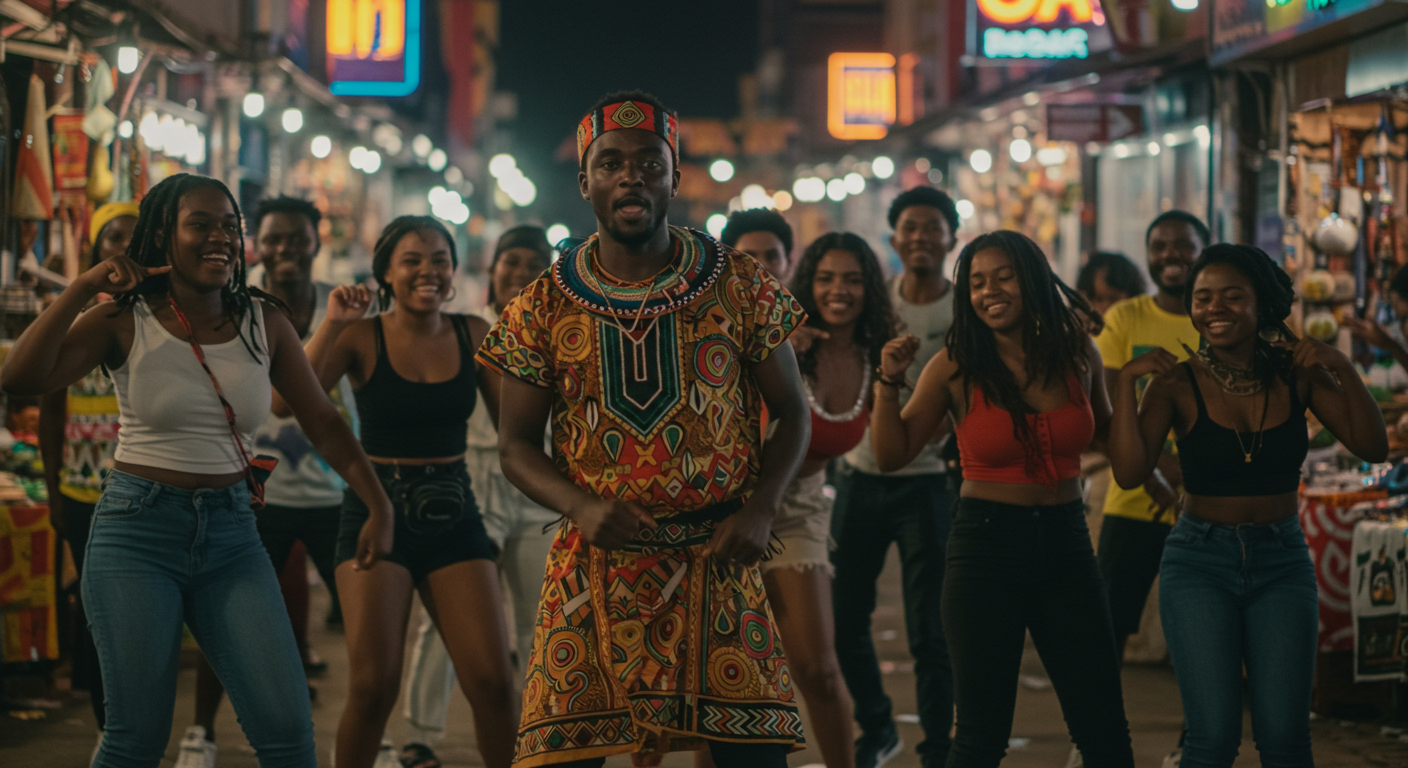Dancing, Laughing, and Going Viral: Africa’s TikTok Takeover
TikTok has transformed how the world consumes entertainment. And Africa? It didn’t just join the party, it started the vibe.
From viral dances to hilarious re-enactments and unique cultural showcases, many of TikTok’s most iconic challenges and trends have been born on the continent. With Africa’s youthful population, deep well of creativity, and mobile-first culture, TikTok has become a stage where everyday Africans shine and the world watches.
Let’s explore the TikTok challenges that began in Africa, how they went global, and what they say about digital culture today.
The Global Sensation: #JerusalemaDanceChallenge
It all began with a South African house track called “Jerusalema” by Master KG featuring Nomcebo. The track, rich in rhythm and spirit, caught fire after a group of Angolan friends posted a dance challenge video.
Soon, people across the world from airline crews to hospital staff and monks were dancing to the beat. Even the European Union, UN, and Vatican nuns joined in.
Why it went viral:
Simple choreography
Feel-good energy
A beat that transcends language
It became a symbol of joy during the pandemic and proved the power of African music and dance on global platforms.
More TikTok Challenges Born in Africa
1. #DontLeaveMe Challenge (Nigeria)
Started by Nigerian comedian Josh2Funny, this “pun challenge” had participants making hilarious wordplay while friends screamed and ran in mock awe.
Example: “I got a bag of rice. Am I a rice farmer?”
Friend screams and runs off.
Impact:
Went viral worldwide
Celebrities like Kevin Hart and Will Smith jumped on it
2. #ZankuLegWork Challenge (Nigeria)
Named after the popular dance style “Zanku,” this challenge saw TikTokers flaunting their best footwork in public and private spaces.
Result:
Helped spread Afrobeat culture globally, especially among teens.
3. #ElMaestroChallenge (South Africa)
Based on Amapiano DJ El Maestro’s beats, dancers posted slick choreography often filmed in township streets. The smooth, soulful footwork went viral, introducing more of the world to Amapiano culture.
4. #TanzaniaUnusualChallenge (Tanzania)
In this viral challenge, people performed traditional dances in unexpected places—like supermarkets or gas stations—bringing cultural dance into modern contexts.
What Makes African TikTok Challenges Unique?
Rhythm & Dance:
Africa is rhythm. Whether it’s Afrobeat, Bongo Flava, or Gqom, dance is woven into the DNA of most challenges.Culture & Language:
You’ll see local dialects, traditional outfits, foods, and even ceremonies reimagined as content.Humor & Satire:
African humor thrives on exaggeration. Challenges often include funny skits, voiceovers, and ironic twists.Community Participation:
African TikTok isn’t about perfect editing—it’s about vibe. Family members, market women, and random strangers often join in.
The Role of Afro-Influencers
TikTok stars across the continent are becoming global trendsetters:
SoftMadeIt (Nigeria): Known for slick transitions and dance moves.
WianMagic (South Africa): Combines magic tricks with humor.
Azziad Nasenya (Kenya): Helped spread the Utawezana challenge.
Angry Baba (Ghana): Known for his hilarious “angry dad” rants.
These influencers often launch challenges that resonate across class, region, and age group.
Cultural Pride Meets Viral Fun
African TikTok isn’t just about going viral—it’s a powerful form of cultural expression. From fashion to food, challenges have sparked pride and curiosity:
#AncestralDressUp: Wearing traditional clothes with narration about heritage.
#AfricanMumChallenge: Recreating classic “African mother” moments.
#OurCuisineChallenge: Showing off cooking processes—from pounding yam to street food.
The Business Side of Going Viral
TikTok challenges aren’t just for laughs—they’re now marketing tools. Brands and artists collaborate with African creators to launch new music, trends, and even political messages. Governments are beginning to recognize digital creators as essential cultural ambassadors.
Final Word
African TikTok creators and challenges are not just influencing trends—they’re shaping global digital culture. What starts as a dance in Nairobi or a joke in Accra can become a global movement in days.
In the age of short-form content, Africa’s creativity, rhythm, and humor reign supreme. So the next time you open TikTok and feel like dancing, thank Africa—it’s probably where the vibe came from.



